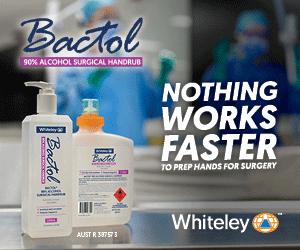
In the words of the song by legendary king of soul Sam Cooke: “It’s been a long, long time coming but I know a change gonna come, oh, yes it will”. This new driver of change is equity and it really does matter. Equity recognises different people with different levels of advantage require different approaches and resources to get equitable health outcomes.
Embedding it in practice
As health advocates, we should not be apologetic for expecting and wanting more for our people and communities.
We need to clearly understand what equity means and we must commit to embedding it in our everyday practice. This includes asking questions about our practice such as: How do we do that? We want to look at how we work – so are we doing the right thing? Do we use a fair and social justice approach?
If not, we need a whole-of-system change. To do that, we need the right skills – many of these need to be learned.
The karanga of change is calling to each and every one of us, no matter what your role is or where you are located. The pace of this change means that we cannot afford to be inactive or complacent in our workplaces. It is clear that we will need everyone to be on this waka – he waka eke noa!
This karanga challenges us to do better to achieve equity. Dinosaurs like racism (Ray) and colonisation (Colin) will no longer be tolerated. Many who have had to deal with Ray and Colin in their life will welcome allies and positive changes in their lives, while others will have to look inside and question their entrenched behaviours and practices. This self-reflective practice is personally challenging and will now become a requirement for being a health professional.
For some this wero, or challenge, will simply be business as usual, but for others “equity” will be a new and foreign term. For some, this simply means addressing and incorporating equity and active protection into their everyday mahi; for others this will mean challenging long-held views or behaviours that are no longer acceptable in any workplaces in this new world.
Leading the call to make effective change for Māori health is the Minister of Health, Andrew Little, who wants to get it right, and there is no second option in the Government’s massive shake-up of the health system. Underlying these foundational changes is the minister’s commitment to upholding the articles of te Tiriti o Waitangi, which includes tino rangatiratanga, active protection, partnership, options and equity.
Active protection
As indicated in the Waitangi Tribunal 2575 Hauora stage one report, everyone must demonstrate active protection in their everyday health mahi. No longer will the Crown-created te Tiriti o Waitangi principles, commonly referred to as the 3Ps (partnership, protection and participation) be tolerated. Expectations for Crown employees to demonstrate the Crown’s commitment to te Tiriti o Waitangi articles will be a requirement.
Fortunately for health professionals, the Ministry of Health has defined equity for the health sector, highlighting that equity has a shared and measurable accountability to its delivery. The solutions start by us all raising our united voices. As patient advocates ensuring equity in health care means we have to walk the talk and find solutions for our patients and their whānau. Nurses and other health professionals will need to lead and play a big role as disruptors and advocates for change. This is especially important for those who have a commitment to collective action and social justice.
Sometimes understanding what equity is and how it can be used in our nursing practice can be difficult to translate. However, we know that with the right heart, and courage, we can advocate, assess, apply and embed equity into our practice. Training in equity sometimes starts with a questioning mind and a curiosity to demand more for our patients and their whānau.
Can’t afford to pay
Active protection may mean removing barriers to care, like questioning whether a patient or their family can pay for the prescribed inhalers when we know the person with asthma cannot afford the prescription. Health services may have to redefine what service provision looks like. For example, equity service delivery could involve providing a wraparound service that addresses income poverty by supplying free inhalers, planned education sessions on inhaler technique, proactive referrals for priority warm housing, free curtains or bedding, letters of support for additional specialist appointments or additional benefits and planned monthly free 30-minute appointments.
Opening one’s head, heart and arms to equity can be an amazing journey and an opportunity to be part of the change process.
We can all make a difference together, in the spirit of kotahitanga and solidarity. Now is the time to be courageous, to be active disruptors for change in the health sector. Incorporating te Tiriti o Waitangi articles as part of our nursing patient assessment is something that every workplace should be preparing staff to do, with equity training. New solutions are needed – these need to include patient and whānau perspective and reviewing health professionals’ cultural safety.
Equity must become the new pango – the new black – for all who work in the health sector.




